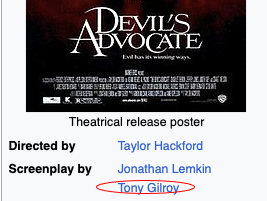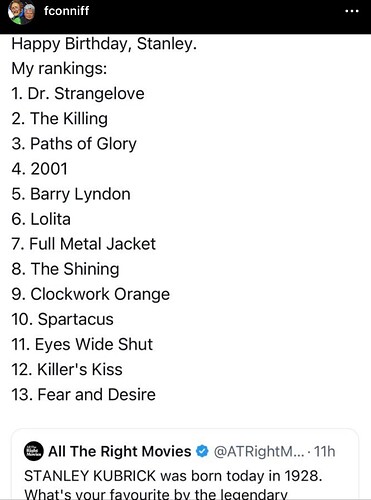Plus, like, IDK if you saw Speed 2, but one look at the script and I’d have maybe run too.
Reeves said he just didn’t connect with the script, and I’m not saying his presence would have made the movie GOOD, but the movie kept virtually every callback reference to Jack and even some of the original cast, so by having Jason Patrick as the lead, it loses any emotional resonance that might have carried over from seeing Jack and Annie go on a presumed honeymoon–only to get caught in a reprise of how they met that makes them question whether they really ought to be together. That could have been great!!!
Reeves originally didn’t like the script for Speed 1, either, and he only got fully on board once it got a rewrite from a young Joss Whedon. For all his flaws, Whedon outshines almost anyone with his dialogue.
Jan de Bont brought in Joss Whedon a week before principal photography started to work on the script. According to Yost: “Joss Whedon wrote 98.9 percent of the dialogue. We were very much in sync, it’s just that I didn’t write the dialogue as well as he did.”
One of Whedon’s contributions was reworking Traven’s character once Keanu Reeves was cast. Reeves did not like how the Jack Traven character came across in Yost’s original screenplay. He felt that there were “situations set up for one-liners and I felt it was forced—Die Hard mixed with some kind of screwball comedy.” With Reeves’ input, Whedon changed Traven from being “a maverick hotshot” to “the polite guy trying not to get anybody killed,” and removed the character’s glib dialogue and made him more earnest.
Yost also gave Whedon credit for the “Pop quiz, hotshot” line.
And then there’s this juicy bit about Cameron/Connor.
Another of Whedon’s contributions was changing the character of Doug Stephens (Alan Ruck) from a lawyer (“a bad guy and he died”, according to the writer) to a tourist, “just a nice, totally out-of-his-depth guy”.
And then it turns out that Jeff Daniels was originally going to be revealed as the villain 
Whedon worked predominantly on the dialogue, but also created a few significant plot points, like the killing of Harry Temple. Yost had originally planned for Temple to be the villain of the story, as he felt that having an off-screen antagonist would not be interesting. However, Yost recognized that there was a lot of work in the script to establish Temple as this villain. When Dennis Hopper was cast as Howard Payne, Yost recognized that Hopper’s Payne readily worked as a villain, allowing them to rewrite Temple to be non-complicit in the bomb situation.






![Man of Steel - Official Trailer 3 [HD]](https://img.youtube.com/vi/T6DJcgm3wNY/maxresdefault.jpg)